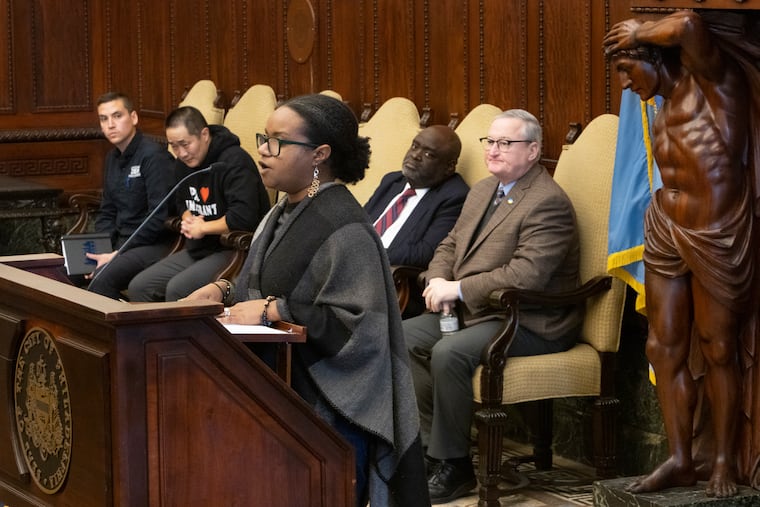Misinformation is spreading about the new Haitian immigration process. Here’s what to know.
“One of the most concerning issues is misinformation and people trying to take advantage of folks,” said Alain Joinville of the Office of Immigrant Affairs.

Josephys Dafils knew something was wrong when he started getting constant phone calls.
The founder of Haitian-American United for Change was flooded with inquiries from community members about a new immigration program for Haitians: Could they apply for other people? Do they need immigration lawyers to apply? Who is qualified? The questions were endless, and Dafils realized he needed to do something to spread awareness.
In January, the U.S. government rolled out a new immigration program for Haitians — as well as Cubans, Venezuelans, and Nicaraguans — called humanitarian parole. The program allows U.S. residents who meet certain criteria to sponsor a Haitian immigrant to come to the country. But since its rollout, there have been multiple challenges with the program within the Haitian community, ranging from technical issues with the application to the spread of misinformation and immigration fraud.
“In so many ways, the immigration process is very confusing,” said Jennifer Joseph, a pastor at Zion Community Church. “I’m glad that the administration is trying to respond to what’s happening in Haiti, but it’s not really ideal in terms of how it’s being managed.”
With confusion rampant in the Haitian community, local organizations and entities swiftly responded to spread accurate information about the program and support community members in the application and resettlement process.
Dafils, for example, co-hosted an informational webinar with the local branch of U.S. Citizenship and Immigration Services, as well as the city’s Office of Immigrant Affairs.
Bilingual outreach has been conducted, particularly through social media that is popular among the Haitian community, such as WhatsApp. And the Haitian church has played a major role as a trusted source in the community.
“Haitian churches have been a colossal help in outreach to communities and helping to host legal clinics,” said Alain Joinville, director of strategic communications and programs in the Office of Immigrant Affairs. “In terms of long-term institutions for the Haitian community in Philadelphia, the Haitian churches are the strongest. The best way to reach people is at church.”
Joseph, for example, takes breaks during Sunday worship to provide churchgoers with information about the immigration program. And Christopher Neilson, pastor of The Living Church, has held immigration clinics, facilitated fee waivers, and tapped into his extensive network to support newcomers.
“The churches are the trusted place,” Neilson said. “I would say that my network touches every single Haitian migrant in this region in some way, shape, or form. But this is not window-washing. This is hard work.”
When it comes to the humanitarian parole program, there are a few things community organizers want to make sure interested parties understand.
1. The program is 100% free.
The program is free to apply to. If somebody offers sponsorship to a migrant at a cost, that is fraudulent and illegal. And there is no need to use an immigration lawyer to apply for the program.
“People prey on folks who are in desperate situations trying to get to the U.S. with paperwork-type fraud, or even representing themselves as attorneys,” Joinville said. “But really, they’re just slowly bilking people out of their money.”
2. You don’t have to be a U.S. citizen to sponsor a migrant.
Qualified sponsors just need to be lawful residents of the U.S. Other criteria sponsors need to meet include demonstrating the ability to financially support and house the migrant, as well as help them with general resettlement such as school enrollment for children, employment, and health care. Sponsors will also have to pass security and background vetting.
3. The applicant doesn’t need to physically be in Haiti.
“As long as you’re a Haitian national, you can apply,” said Dafils. “You can be wherever.”
Immigrants can also apply if they are married to someone who is Haitian.
4. Minors have access to the program.
Applications can be submitted for children under the age of 18, but minors cannot travel to the U.S. by themselves. A parent or legal guardian has to travel with them.
5. You can sponsor non-family members.
Whereas immigration sponsorship historically deals with family members, that’s not the case for the humanitarian parole program. Sponsors can support any Haitian national they choose to.
6. The program does not have an end date at this time.
Untrue information has spread that the program is going to close soon. The program just started in January, and there have not been talks of it ending anytime soon.
“One of the most concerning issues is misinformation and people trying to take advantage of folks,” said Joinville.